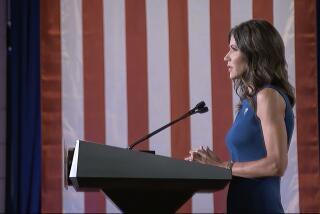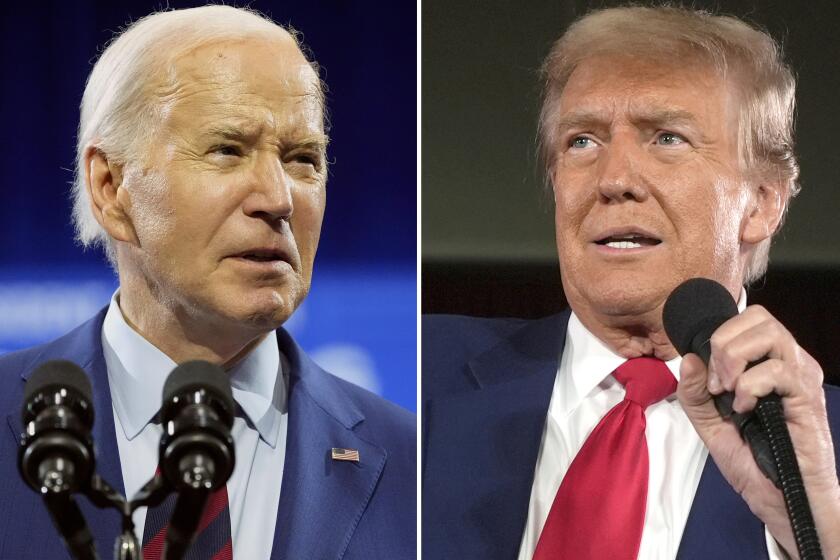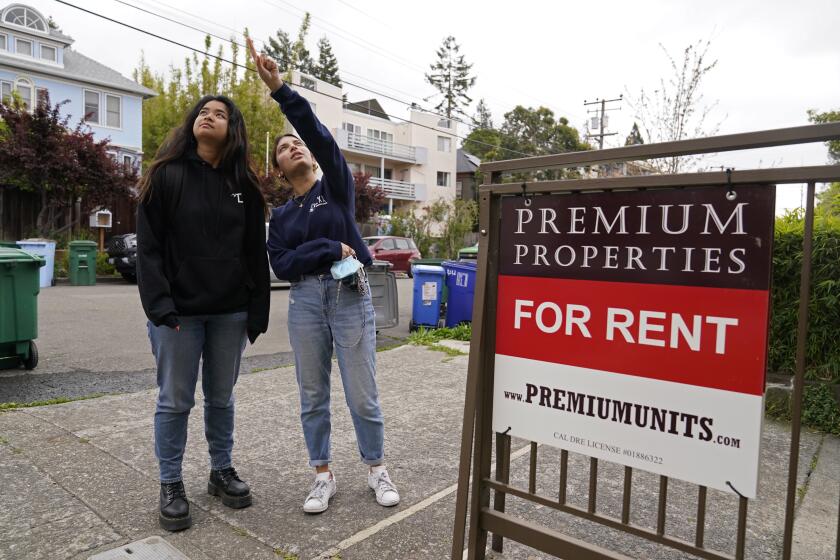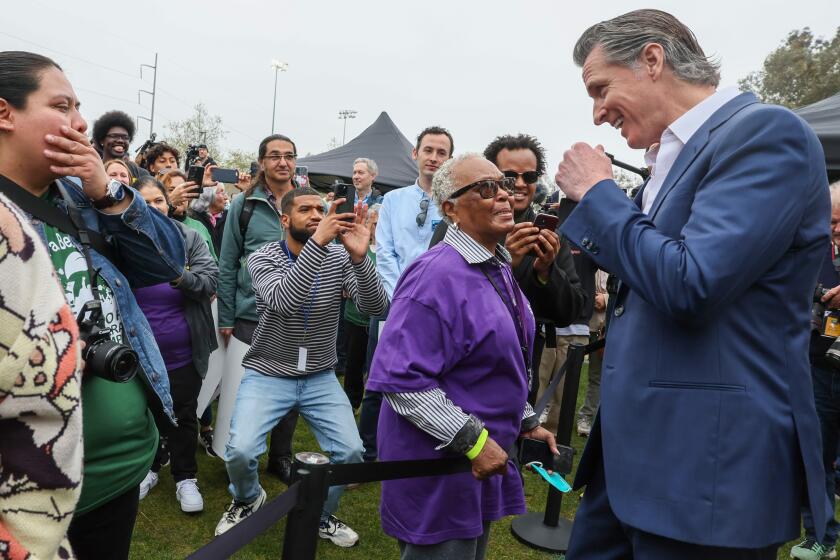CAMPAIGN ’96 : In Sunshine State, Alexander Watches Sunset of His Campaign
With his presidential bid as cold as the whipping winds he left behind in Vermont--one of the many states where he ran poorly in Tuesday’s cavalcade of primaries--Lamar Alexander had headed south intending to draw a line in the Florida sand.
Instead, the Sunshine State became the burial ground for his Republican presidential campaign.
Alexander, 55, had not expected to do well in Tuesday’s contests, but he had not anticipated doing as poorly as he did. After a day of campaigning in Florida, which holds its primary next Tuesday, Alexander learned that he ran fourth in most of Tuesday’s races, and in one case fifth. Nor did he win a single delegate.
The first sign of the impending decision came as the Alexander campaign plane touched down in St. Petersburg, Fla., after a campaign stop in West Palm Beach. The candidate, normally accessible to reporters, ducked quickly out of the plane, avoiding the press pack that for days had badgered him about whether and when he would quit the race.
At first, as rumors began to swirl of an impending withdrawal, aides tried to avoid answering the increasingly impatient questions. But finally, as the hour grew later and the returns grimmer, Mike Murphy, the campaign’s chief strategist, stood by the bar of the Belleview Mido Resort Hotel here and conceded the inevitable.
“The final decision was just made,” he said, an exhausted look on his face. “There was a phone call with some of his family and some of his closest advisors.”
“Gov. Alexander will be holding a press conference and making a statement,” Murphy said, adding that Alexander would return to Tennessee, where, aides said, he would formally announce his withdrawal at 10 a.m. PST. Although Murphy said Alexander was in good spirits, the candidate seemed withdrawn in the final hours before he decided to pull out.
In identifying Florida earlier this week as the state where he would stake his final hope of galvanizing his campaign, Alexander had said that if he failed to derail Bob Dole here, he would “gracefully” bow out and endorse the Senate majority leader. Alexander campaign sources late Tuesday night said he still plans to endorse Dole, but it is unclear whether he will choose his Nashville news conference to do so.
Earlier in the day, as he stumped in Florida, Alexander had sought to quiet the drumbeat of defeat that increasingly surrounded his campaign.
“My plan is to stay in right through Florida, then to beat Sen. Dole in Florida and stay in right through [the GOP National Convention in] San Diego,” Alexander said at a rally in Fort Lauderdale.
But he did not sound particularly convincing.
At a rally in Boca Raton, reporters continued to press the issue, and Alexander appeared annoyed. While walking from a rally, he abruptly dismissed a reporter who asked again if he would be pulling out as the dimension of his poor showing began to become apparent.
“I’ve answered that already,” he snapped.
But as the day wore on, his outlook grew ever more bleak. Even in the few Tuesday primaries where Alexander had sought a respectable showing, his hopes were crushed.
Last week, after finishing a distant fourth in the Arizona primary, he had identified Georgia as potentially friendly turf. He and his aides noted that the state’s northern portion is in Tennessee media markets; thus, Alexander was well-known to voters there.
That familiarity seemed to make little difference. He ran a distant third in Georgia, far behind Dole and Patrick J. Buchanan, even in the supposedly friendly north, and barely ahead of publisher Steve Forbes.
So it went in other states where Alexander had campaigned recently. The one-on-one face-off with Dole that he had insisted the GOP race ultimately would come to actually occurred in Rhode Island: Among the major candidates, only he and the Kansas senator were on the ballot there. Dole swamped him.
In Colorado, where Alexander had drawn good crowds a week-and-a-half ago, he ran fourth.
Alexander’s withdrawal will end a quest that had been plagued almost from its start. He initially planned to define his campaign as a crusade against the entrenched Democratic congressional establishment. His early slogan was: “Cut their pay and send them home.” The surprising GOP landslide in November 1994 that gave Republicans control of both the Senate and House defused that theme. Alexander then focused on electability, and it became his campaign’s main thrust.
As he staged walks across the early testing grounds of Iowa and New Hampshire, repeating a successful tactic he used in Tennessee, Alexander argued that as a younger, fresher face on the national scene, he would be a far better candidate against President Clinton than the 72-year-old Dole. Again and again, he would end his speeches with his new slogan: ABC, or Alexander Beats Clinton.
As it turned out, he was unable to win a single Republican caucus or primary.
Times political writer Ronald Brownstein contributed to this story.
More to Read
Get the L.A. Times Politics newsletter
Deeply reported insights into legislation, politics and policy from Sacramento, Washington and beyond. In your inbox three times per week.
You may occasionally receive promotional content from the Los Angeles Times.






